#music industry: ticketing
Text
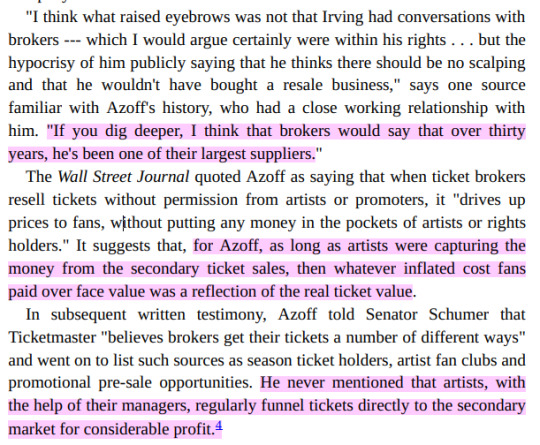

Ticket masters: The rise of the concert industry and how the public got scalped
50 notes
·
View notes
Text
Yesterday [April 30, 2024], a bipartisan collection of US Senators introduced the Fans First Act, which would help address flaws in the current live event ticketing system by increasing transparency in ticket sales, and protecting consumers from fake or dramatically overpriced tickets.
Today, the artists and Congressmen allege, buying a ticket to a concert or sporting event requires negotiating a minefield of predatory practices, such as speculative ticket buying and the use of automated programs to buy large numbers of tickets for resale at inflated prices.
The legislation would ban such practices, and include provisions for guaranteed refunds in the event of a cancellation.
The political campaign organizers, calling themselves “Fix the Tix” write that included among the supporters of the legislation is a coalition of live event industry organizations and professionals, who have formed to advocate on behalf of concertgoers.
This includes a steering committee led by Eventbrite [Note: lol, I'm assuming Eventbrite just signed on to undermine Ticketmaster and for PR purposes] and the National Independent Value Association that’s supported by dozens of artistic unions, independent ticket sellers, and of course, over 250 artists and bands, including Billie Eilish, Dave Matthews, Cyndi Lauper, Lorde, Sia, Train, Fall Out Boy, Green Day, and hundreds more which you can read here.
“Buying a ticket to see your favorite artist or team is out of reach for too many Americans,” said Senator Amy Klobuchar (D-MN).
“Bots, hidden fees, and predatory practices are hurting consumers whether they want to catch a home game, an up-and-coming artist, or a major headliner like Taylor Swift or Bad Bunny. From ensuring fans get refunds for canceled shows to banning speculative ticket sales, this bipartisan legislation will improve the ticketing experience.”
Senators Marsha Blackburn (R-TN), Ben Ray Luján (D-NM), Roger Wicker (R-MS), John Cornyn (R-TX) and Peter Welch (D-VT) also signed on to the Fan First Act.
In the House, parallel legislation was just passed through committee 45-0.
[Note: That's a really good sign. That kind of bipartisan support is basically unheard of these days, and rare even before that. This is strong enough that it's half the reason I'm posting this article - normally I wait until bills are passed, but this plus parallel legislation with such bipartisan cosponsors in the senate makes me think there's a very real chance this will pass and become law by the end of 2024.]
“We would like to thank our colleagues, both on and off committee, for their collaboration. This bipartisan achievement is the result of months and years of hard work by Members on both sides of the aisle,” said the chairs and subchairs of the Committee on Energy and Commerce.
“Our committee will continue to lead the way on this effort as we further our work to bring this solution to the House floor.”
“The relationship between artist and fan, which forms the backbone of the entire music industry, is severed,” the artists write. “When predatory resellers scoop up face value tickets in order to resell them at inflated prices on secondary markets, artists lose the ability to connect with their fans who can’t afford to attend.”
-via Good News Network, May 1, 2024
#music#concert#performance#live music#live performance#music industry#ticketmaster#eventbrite#concerts#concert tickets#united states#legislation#us politics#good news#hope
212 notes
·
View notes
Text


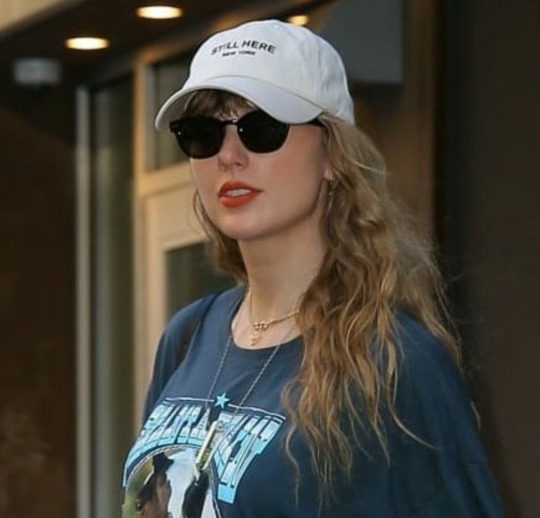
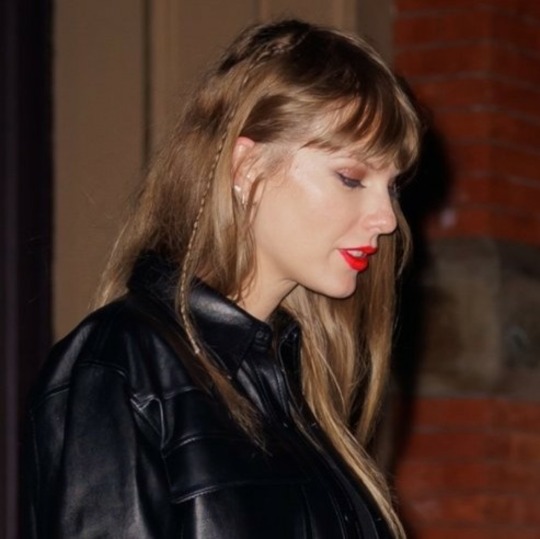
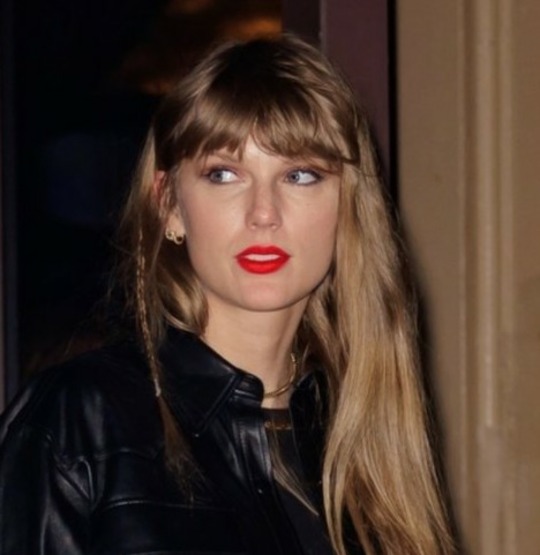


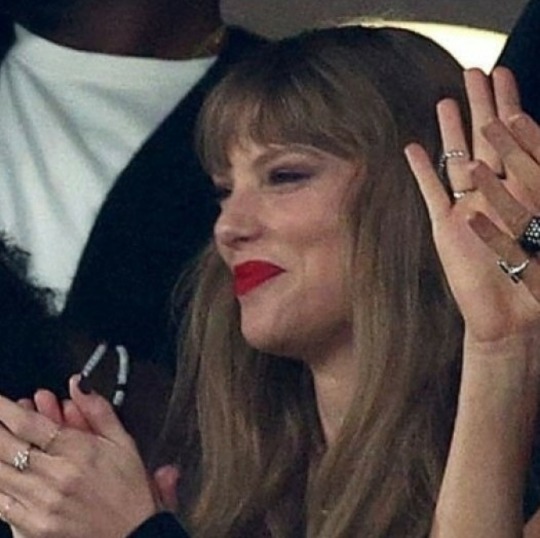

Taylor Swift icons
like, save or repost
#taylor swift#icons#1989 taylor's version#icon girls#evermore#midnights taylor swift#midnights#speak now taylor’s version#taylor swift headers#taylor swift the eras tour#taylor swift tumblr#taylor swift style#taylor swift tickets#taylor swift fearless#taylornation#taylor swift taylor's version#travis kelce#taylor swift icons#taylor swift is the music industry#taylor swift lover#taylor swift 1989#1989 taylors version#taylor swift eras#taylor swift edit#taylor swift enchanted#taylor swift reputation#reputation#red taylor’s version
141 notes
·
View notes
Text
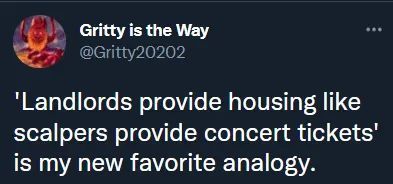
#us politics#twitter#tweet#@gritty20202#landlords#all landlords are bastards#public housing#affordable housing#scalpers#music#music industry#concert tickets#2021
244 notes
·
View notes
Text

1971 !!!
#tickets#concert tickets#krautrock#kraftwerk#electronic#electronics#electro#germany#German#music#industrial#70s band#70's#70s music#70s#70s fashion#70s vintage#1970s#seventies#80s nostalgia#80s music#80's#80s aesthetic#80s#80s rock#80
43 notes
·
View notes
Text
concert tickets are not an investment. hate how everything in this economy we’re like ‘ooh what if I buy it cheap then hike the price up and resell’ and it’s perfectly normal—it’s not. it’s not okay. what’s happening is you’re taking advantage of someone who’s really desperate to see this artist when if they wanna spend that money on the artist, the money should go to the artist themselves. who probably don’t change as much as they could because they’ve set a price that is financially sustainable for themselves and accessible to most who want to go not just the wealthy or those who don’t spend money on any other artists. and I’m not talking about if you can’t go to your concert and resell your ticket closer to it for like 25% more to get a bit back for all the time you spent waiting in queue for a concert you don’t even get to go to. the reason concert tickets are so hard to get is because there are people competing to buy them who are just gonna resell them for absurd amounts of money and honestly? as concertgoers and fans of artists we deserve better. our artists deserve better. they didn’t put a middleman in there. we don’t need it.
#I met someone who spent $1000 on a resold obstructed view eras ticket same as what I bought for $80#that’s just unethical to earn that much from a ticket. honestly I’d say even 50% more or close to double is okay if you were gonna go#but the fact that people are already doing this for the PRESALE tickets for luke just has me like. okay maybe you changed your mind on tier#and maybe I gotta assume the best. but I can’t help but think how many people on these resale sites are just trying to get a bit of money#and they’re making money off someone else’s art. there’s nothing else to say. the artist should get a cut of your profits#bc for taylor or someone they have enough money. but with the music industry as it is there are so many who easily could not#or who have to overwork themselves touring back to back just to get financial security#and hopefully this doesn’t happen for most of them bc ticket scalpers tend to go for the big names#but then it just means if you’re poor you can only see the niche artists and you get left out of connecting over mainstream artists#which is another form of classist segregation this perpetrates
10 notes
·
View notes
Note
I wanna make it clear from the get go that I’m in no way defending Harry’s ticket pricing or Ticketmaster’s ridiculous monopoly over concert tickets.
That said, I think people have a habit of oversimplifying marketing and marketing strategies, and assuming that they’re directly reflective of an artist’s personal greed, so I’d like to offer some alternate food for thought.
I think Harry’s ticket pricing is the result of three things: 1) marketing and brand strategy, 2) audience, and 3) negotiating leverage.
Marketing strategies have multiple layers to them, and are highly dependent on variations per artist per genre. What do I mean? Two people can both be lucrative pop artists but appeal to a widely different audience and will therefore be branded and marketed accordingly. Ed Sheeran, for example, is one of the top pop artists in the business. He’s worked with many of the biggest and brightest pop acts, but his personal brand has always been down-to-earth singer-songwriter troubadour type. That’s the audience he plays to, and that kind of audience has a certain price point and is expecting it to be maintained. It’s very different to the kind of fan who would buy a ticket to a Beyoncé concert, or a Taylor Swift concert, and even though you can argue that there is overlap, you can understand that visually and experience-wise, the branding differs immensely. That directly affects ticket price points.
Next, audience. Like it or not, Harry’s music appeals to a wide audience that’s largely made up of very casual fans, so the profit strategy is quantity over quality. If you pay attention to the kind of audience Harry plays to, at least 75% of them are only going to one show each (casual fans, parents with young children, partners buying tickets for occasions, etc). That means, for them to maximize overall profits, an individual ticket that’s priced much, much higher will give them more returns than multiple affordable tickets (they don’t put the weight on repeat concert-goers because they’re a relatively small part of Harry’s concert audience). The profit strategy for Harry has always been to cater to the maximum number of people possible, while artists like Louis, whose ace up their sleeve is the solid, loyal fan base they’ve cultivated, will put the weight on repeat-concert goers and will therefore be more successful pricing each ticket lower, so people can go to multiple shows.
Yes, it sucks for Harry’s actual, loyal fans, but we have to accept that the current level Harry is at is finite, and given that the music industry will always be profit oriented, they are clearly trying to take advantage of that.
Lastly, negotiating leverage. I think we have to understand that the creative freedom we’ve seen Harry expressing (which has grown markedly from HS1 to HS3) is a direct result of the money he’s able to bring in. Money speaks, and the kind of money Harry’s bringing in tells his label that it would be idiotic to curtail him from writing the kinds of songs he wants, dressing the way he wants, doing covers of magazines in dresses, getting involved with queer artists, designers, actors and projects, etc etc etc. That leverage was hard won, especially for a closeted artist. The fact is, his profitability is likely the only thing that’s keeping them from shoving him back into the frat-boy womanizer narrative he had in 1D because what he’s proven is that his authentic music, taste, and style evolution is actually as lucrative (if not more) than their original branding of him.
So, yes, as much as the pricing of Harry’s tickets sucks and is unfair, I think people should think twice before branding it simple pathological greed. There are many things at play here, and we still have to acknowledge the capitalist nature of the music industry in general. “Survival” as an authentic artist in the music industry comes at a cost, and more than anything, that’s going to come down to an undeniable level profitability.
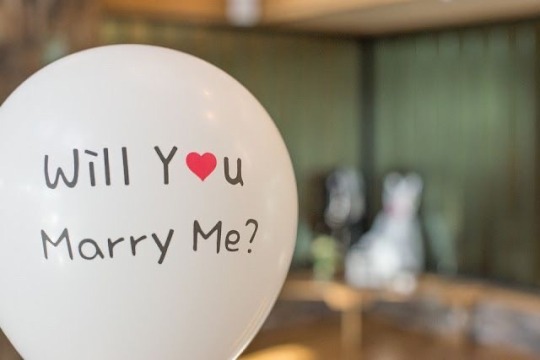
209 notes
·
View notes
Text
Pollstar Staff | 11/1/24
Following a massively successful year with record-setting box office tallies and Taylor Swift’s highest-grossing tour of all time — what’s next for the live biz in 2024? Pollstar’s editorial staff offers predictions.
Live Growth Spurt May Slow
The live industry saw unprecedented growth in 2023 with a massive 46% growth YoY for the Top 100 Tours, according to Pollstar Boxoffice reports. 2024 should be another strong year — but perhaps not a great one. Though the U.S. economy showed promising signs with GDP increasing 4.9% in Q3, the total household debt spiked to $17.29 trillion, according to the Federal Reserve, though inflation continues to outpace salaries. Consumers may think twice before clicking the checkout box and adding another credit card charge, which may decrease ticket sales following live’s record-setting year. – Oscar Aréliz
Reunions, Farewells & Mega-Fests
It’s hard to put the genie back in the bottle, so the industry as a whole will get creative to continue the upward momentum of recent years. Expect more seemingly unlikely reunions, farewells that may not actually be final (cough, cough), and additional legs of tours that seemed like one-time affairs. Also, don’t be surprised if the mega-festival trend (When We Were Young, Power Trip, etc), continues to gather steam to the point of becoming a whole new category of yearly event. – Ryan Borba
Ticketing: Same As It Ever Was
With mounting public pressure, grandstanding politicians and supreme supernova demigoddess Taylor Swift aligning for the cause of ticketing reform, in the coming year one can expect little to change. That’s because tickets are money, whether artists, their teams, promoters, venues or ticketers keep prices low, outsmart bots, include all-in pricing, shut out the secondary or sell on the side, capitalists always gonna capitalize. – Andy Gensler
Sphere’s Innovations Break Out
Many of the innovations that make Sphere so groundbreaking are likely to start trickling out to the world. Don’t expect to see 16K LED screens that stretch around concertgoers at your local arena any time soon, but it’s not a stretch that the beamforming sound system Holoplot created for Sphere becomes scalable enough for broader expansions and artists who already embrace innovation are likely to make bids at recreating Sphere’s already legendary immersive experience at other venues (as best they can). – J.R. Lind
More Protest Songs
More artists will pen anti-war songs, including showing support for innocent civilians in various conflicts. We’ll also hear other politically-minded songs, such as tunes concerning women’s rights — along with more live events booked to benefit those in need and support causes near and dear to artists’ hearts, like 2022’s Love Rising Nashville organized in support of the LGBTQ+ community. Plus, it’s an election year. – Sarah Pittman
Indies Go Back To The Future
Independent operators may remain fiercely competitive but, with the establishment of trade groups NIVA and NITO, a greater spirit of collaboration has emerged in the wake of COVID. In some cases, onetime rivals – including clubs and promoters – are teaming to share resources to lift all boats, while Brian Becker’s LiveCo brought together five indie promoters to expand existing partnerships with entertainment platforms to create new, innovative projects. Expect this trend to continue. – Deborah Speer
Cloning Technology Arrives
Insomniac Events founder/CEO Pasquale Rotella manages to find a scientific breakthrough getting one step closer to cloning himself by 2030. This opens doors for agents and promoters to attend all their events at once, and for artists to play multiple shows at the same time. – Ariel King
#interesting..#and confirming a few of the points we discussed yesterday#this explicitly says that ticket sales are expected to go down from prev years#because of the global economic situation#and that ticket pricing is expected to stay the same or even increase#predictions#music industry#music business#touring#live music#pollstar#11.01.24#link#m#that last paragraph tho.. is that satire or are the serious.. can we.. not :/
2 notes
·
View notes
Text
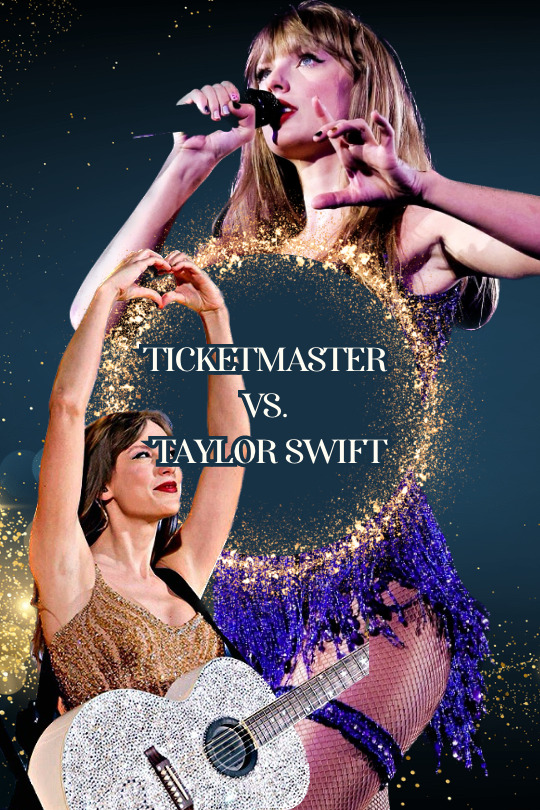
Hi everyone!!! I'm writing an essay about the Ticketmaster fiasco for my music business class and I wondered if you guys could help me by filling out a short survey (pretty please and thank you).
10 notes
·
View notes
Text
its 2am but I can’t sleep bc I officially got a job in the music industry 🎉
I’m apart of a local theaters Street Team, which essentially means I scream and shout abt certain shows on the internet & pass out flyers and such. So excited!!
#bird babbles#only downside is I don’t have an actual pay. I literally get paid in free tickets LMFAO#but it’s so cool and like. sounds nice to say I work in the music industry 💅🏽 and this is a good start so 🤪#idk we’ll see how long this lasts but I’m excited. am I getting exploited? yeah probably w the whole no pay thing but eh w/e#not like I was making a whole lot w my previous job LMFAO#idk the more I think abt it the more I think I might like pursuing a career in the entertainment industry#we shall see where this goes ✨
3 notes
·
View notes
Text

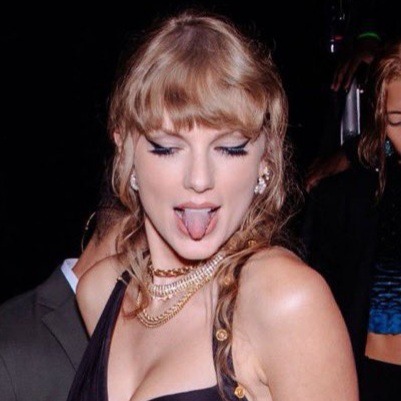
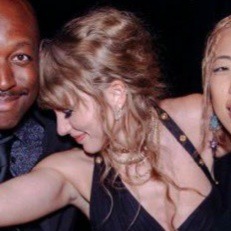

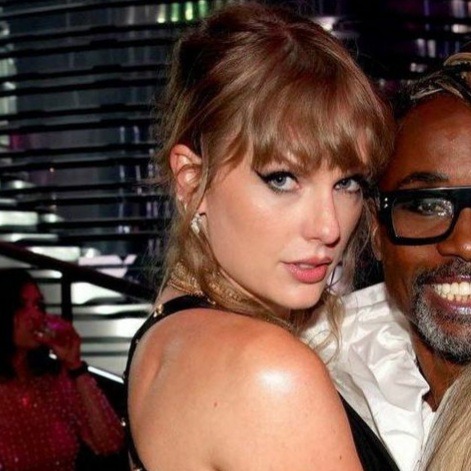

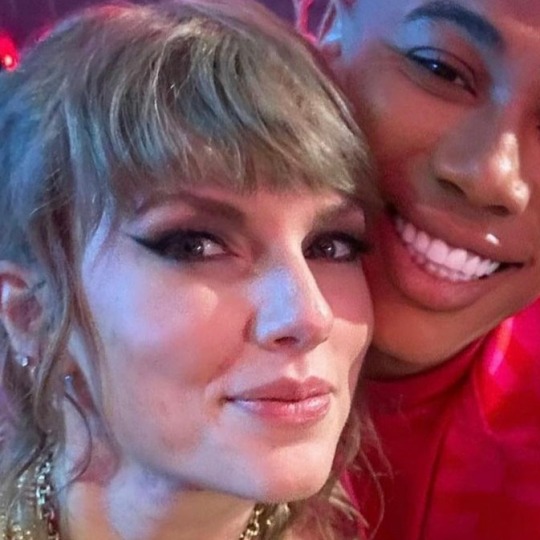
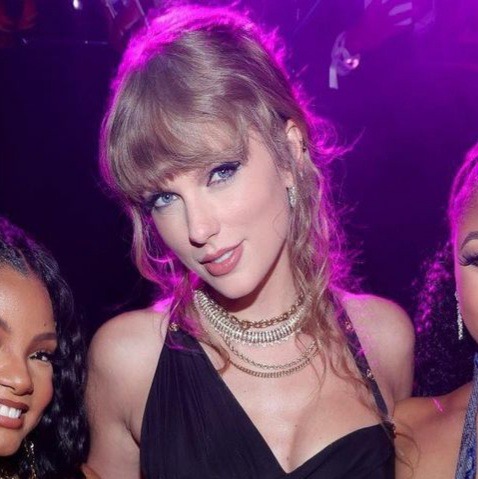
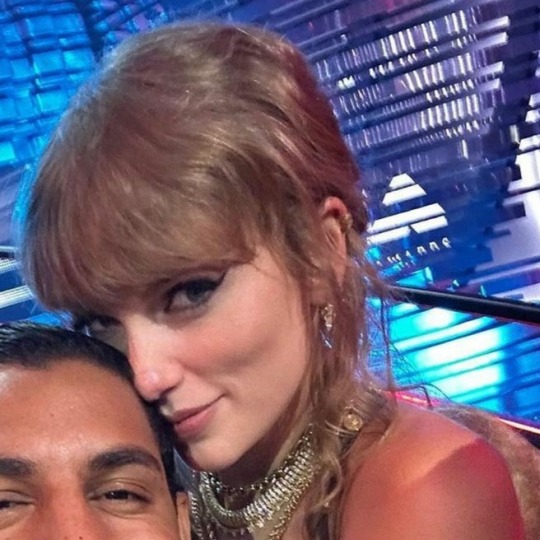
taylor swift in selfie with others on VMA'S icons!
like, save or repost
#taylor swift#taylor swift tumblr#taylor swift tickets#vmas taylor swift#taylornation#speak now taylor’s version#1989 taylor's version#taylor swift icons#taylor swift is the music industry#taylor swift speak now#taylor swift songs#taylor swift style#taylor swift folklore#taylor swift vmas#taylor swift the eras tour#taylor swift headers#taylor swift you’re losing me#taylor swift users#taylor swift fearless#taylor swift reputation#midnights taylor swift#midnights#1989 tv#icons#icons girls#taylor swift album#evermore#lover taylor swift#taylor swift lyrics#taylor swift taylor's version
142 notes
·
View notes
Text
-
#so I was on Instagram#you know how ive been talking about pinguini tattici nucleari for some time#i think they used to be an indie band now they signed with… drum rolls please#🥁 🥁 🥁 🥁 more suspense 🥁 🥁 🥁#columbia reconds!!! you guessed it right#I don’t know when they did actually (i guess near sanremo a few years ago? but I don’t know)#anyway lately they have grown so fucking big#like… severely big. stadium tour big. campovolo big you know?#they did the ‘last’ show two days ago in the RFC arena in reggio emilia (yeah the same harry was in july… funny)#and yesterday they announced the tour will continue in arenas#today tickets are on sale#it’s fucking nuts honestly#I don’t see a reason why artists would do such thing after an entire summer of stadiums tour?#I don’t understand this constant running and running and running as if there’s a countdown or something#it’s exhausting to me and im not even the one doing anything lmao#but just the idea of this rush like somebody is chasing them it’s ridiculous really#it clearly shows how the industry is headed to release things to consume and not really enjoy#it’s a meaning deprived world never a contetn deprived world#you know when they introduced fast food chains because people were so busy to even sit down and enjoy their meal breaks?#this is the same thing but with music and artists#it’s no sushi bfr that shit takes time to cook and prepare#that’s the fastest mc toast or something#which is honestly quite saddening but it’s just me and my old fashioned heart
3 notes
·
View notes
Text
babes the issue isn’t that “taylor” (as in, the actual person taylor swift and whatever combination of her team at 13 management, team at her record label, booking agents, concert promoters, venues, and live nation/ticketmaster employees that have collaborated to plan this massive undertaking of a tour) chose to work with ticketmaster. the issue is that there is no choice.
#it is bigger than her#i just wish ppl would channel this energy into actually caring abt changing the music industry instead of just complaining abt things#<- sorry if that sounds bitchy (esp coming from someone who could definitely be doing more to change things)#but these are just issues i'm really passionate about and it's frustrating when people misunderstand/misinterpret them#and only care when it directly affects their life#ugh sorry please yell at me if this is too pretentious or not the right time for these tags#i don't want to invalidate people being upset. because i know if i hadn't gotten tickets i would be devastated#(and i had to deal with that for loverfest and it was heartbreaking)#i just would love if music fans became more conscious about the industry itself!!#because music is so fundamental to all of our lives and there is a lot of reform that could be done to make things better for everyone <3#vi is typing...
10 notes
·
View notes
Text
The perfect convergence - John Oliver comes HARD at Irving Azoff, Ticketmaster, and Live Nation, and declares his love for 1Dans says Niall is his favorite- YouTube

17 notes
·
View notes
Text
Clyde Lawrence (from the band Lawrence) calling out the Ticketmaster at the US Senate's hearing, 24 January 2023 x
#the rich get richer#conflict of interest#corruption#merchandise#tickets#venue#parking fee#Ticketmaster#live nation#music industry#24 January 2023#mine
4 notes
·
View notes
